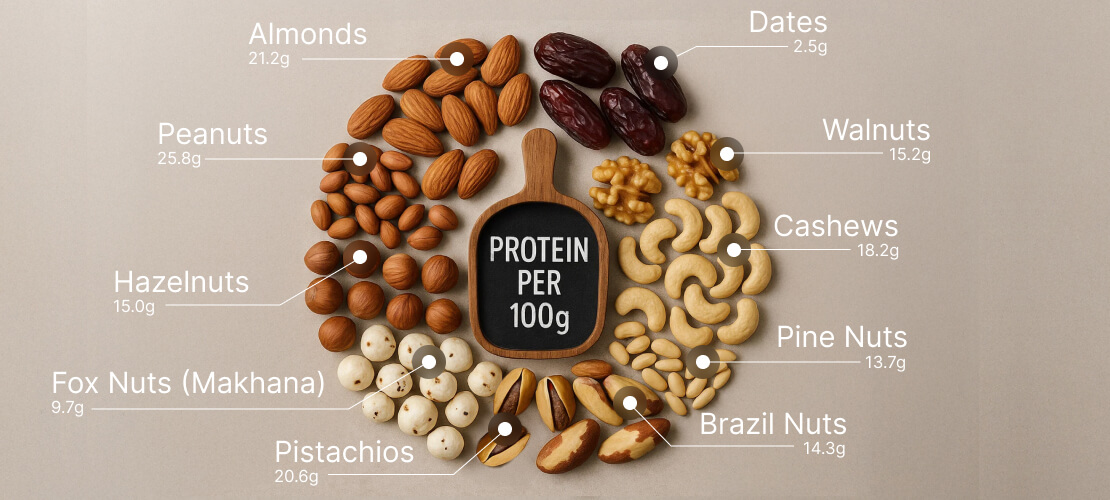Every parent aspires to ensure that the nutrients they offer to their child meet all requirements and ensure a healthy growth rate of the child. Though balanced dieting forms a crucial factor, it sometimes cannot be able to provide a diet with the proper combination of every essential nutrient; that is why there are supplements in nutrition that complete the rest to provide healthy, well-balanced nutrition to maintain good health.
But how do you know if your child really needs supplements? Are there clear signs of deficiencies or imbalances in their diet? In this blog, we will highlight the key signs of missing essential nutrients and how your kids can benefit from supplements and explain why including them in their daily diet is so important.
1. Your Child is a Picky Eater

Common signs of nutrient deficiencies in picky eaters include:
- Fatigue or low energy
- Weakened immune system, thus being frequently ill
- Delayed growth or slow weight gain
- Pale skin or dark under-eye circles
The benefits of giving children supplements in this case are that it would provide the lacking nutrients in a more concentrated form, ensuring kids get the vitamins and minerals despite their limited food choices.
2. Frequent illness or Struggles with Infections

A strong immune system depends on an adequate intake of vitamins and minerals. If your child frequently gets sick, has frequent colds, or does not recover from illnesses, he/she may have a downright deficiency of these essential nutrients that start up with the immune functioning process.
- Vitamin C: Prevents scurvy, improves the immune functions, and also keeps skin healthy.
- Vitamin D: Reduces the development of respiratory infections.
- Zinc: Assists in the building of the immune-active cells.
If your child’s immunity remains weak despite a healthy diet, nutritional supplements for kids can help bolster their defenses.
3. Slow Growth or Weight Gain

Growth and development are key indicators of your child’s health status. If your child is facing stunted height growth or not gaining weight as expected, it might mean that he is not receiving enough nutrients for optimal growth.
- Iron deficiency causes poor growth and development.
- Vitamin D deficiency hinders the growth of bone and calcium absorption.
- Protein deficiency can impair muscle development and general physical growth.
Even though genetics play an important role in growth, supplements like multivitamins, vitamin D, or iron can support growth if the diet isn’t providing enough of these essential nutrients. Referring to resources like the Indian height-weight chart can help you assess whether your child is on track for their age and development milestones.
4. Fatigue or Low Energy Levels

Nutrient deficiencies linked to fatigue include:
- Iron: Leads to anemia, which causes weakness, low energy, and inability to work as usual.
- B Vitamins: These vitamins are essential for energy production, and a deficiency in them can cause fatigue and irritability.
- Vitamin D: Vitamin D deficiency is another common cause of fatigue and muscle weakness.
5. Behavioral Changes or Difficulty Concentrating

Nutrition impacts your child’s physical health, but it also plays a big role in their mood, behavior, and ability to think clearly. If your child has trouble focusing at school, gets irritated easily, seems overly anxious, or becomes withdrawn, these could be signs they’re missing certain nutrients.
- Omega-3 fatty acids in fish oil help with brain development and keep one’s mood on track.
- Vitamin B12 and folate contribute to mental clarity, focus, and emotional stability.
- Magnesium plays a role in relaxation and proper brain functioning.
How to Know if Your Kid Needs Supplements
It is highly advisable to consult with your child’s pediatrician before going for any kind of supplement. The pediatrician will have the ability to assess the child’s health, growth, and nutrition, which will enable him/her to decide whether the supplements are really needed or not.
Pay attention to how your child eats. For most children, eating habits will fall into a predictable routine. Regardless, a fussy eater or someone who practices restrictive diets like vegetarianism or veganism is at the highest risk of vitamin/mineral deficiencies.
Conclusion
Nutrients play a major role in healthy growth and development. While a balanced diet must be maintained, nutritional supplements for kids can provide assistance in situations where the children appear picky eaters, frequently fall ill, or exhibit signs of nutrient deficiency.
FAQs
Yes, when recommended by a pediatrician and used as directed, nutritional supplements are safe and can help address deficiencies in your child’s diet.
Multivitamins, omega-3 fatty acids, and supplements rich in vitamin D, calcium, and iron are often recommended for picky eaters to ensure balanced nutrition.
No, supplements should complement a healthy diet, not replace it. A well-balanced diet remains the best source of nutrition for your child.
Consider supplements if your child shows signs of deficiencies such as fatigue, frequent illnesses, slow growth, or behavioral changes.




